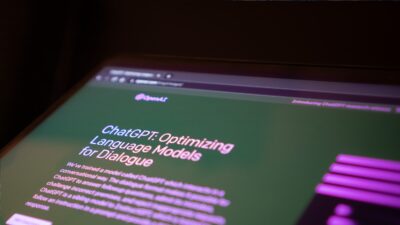
Fairness control for risky artificial intelligence decision making
Exploring the balance between AI decision-making and human ethics leads to a critical question: How can we ensure fairness in AI's life-altering decisions?

Your car is watching you. The implications are profound and immediate
The issue of privacy breaches by car manufacturers is often overlooked.

ChatGPT is a data privacy nightmare. If you’ve ever posted online, you ought to be concerned
ChatGPT is fuelled by our intimate online histories, yet users have no way of knowing which of their data it contains.

What maths can teach us about privacy
How can we future-proof privacy so that in years hence it is not violated when dissected by more powerful computers?

Only 15% of AI investments succeed. An AI translator could help the other 85%
Investments in AI technologies are accelerating worldwide, what could an AI translator do to improve the success of AI-led projects?

After the Optus data breach, Australia needs mandatory disclosure laws
Optus made a public announcement about its breach but was not legally required to do so. This needs to change.

Data is not the new oil with Genevieve Bell
This week: our 300th episode. We’re joined by Professor Genevieve Bell to settle once and for all – if data is not the new oil, then what is it?

State of the Digital in 2022 (and the future) with Simon Kemp
This week: don’t believe the hype – the surprising truth about what is really going on online.

Weird new jobs
This week: the AI whisperer, AI artist managers, data detectives, metaverse supply chain strategy consultants, and more cool jobs in the digital era.

Facial recognition and public data
This week: all things facial recognition and the implications of using public data.

TED Talks and science on The Future, This Week
This week: what if the science behind your favourite TED Talk was wrong?

Business models and big tech on The Future, This Week
This week: reducing the reliance on ad revenue, reducing the reliance on external partners: how big tech companies evolve their business models.